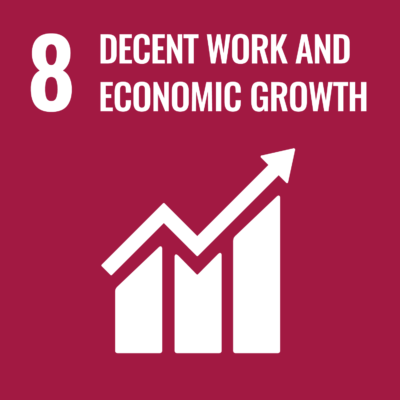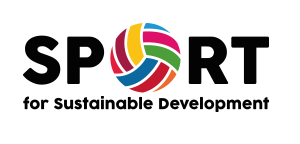
GLOBAL INTRODUCTION OF THE GOAL WITH SOME STATISTICS
Worldwide, there are approximately 1.3 billion young people between the ages of 15 and 24. Around 497 million young people, or roughly 41 per cent of the global youth population, are in the labour force. Of these, 429 million are employed, while nearly 68 million are looking for, and are available for, work (these are defined as unemployed). Globally, one-fifth of young people currently have NEET status, which means they are neither gaining experience in the labour market, nor receiving an income from work, nor enhancing their education and skills.
Nowadays, the sport industry is a sector with considerable potential for the global economy, providing employment opportunities for millions. The global sports sector has an estimated value of 700-800 billion USD, which is approximately 1.5 percent of global GDP. Just for the EU as a whole, the contribution of sport-related employment to total employment is 2.12%. In absolute terms, this is equal to 4.46 million employees.
Although sports are niche itself, it involves several sub-sectors, including but not limited to sporting events, sports infrastructure, training, media, goods manufacturing, sporting equipment production and sale. Other main actors of the global economy including education, transportation and tourism are also engaged with the sports industry. As more sub-sectors are created in the sports industry, the number of employees in the field of sport are increasing relatedly.
Sporting events, whether at grassroots, national or international levels, can make a strong contribution to economic growth and employment. In recent years, the potential of the workforce in mega-sporting events have attracted considerable attention. As of July 2019, approximately 1.9 million people nationwide in Japan could find new employment opportunities thanks to the Tokyo Olympics and Paralympics. The large-scale infrastructures (including stadiums, hotels and transport infrastructures) of mega sport events create job opportunities in the industry. Sport events can cause an efficient impact in sport tourism on a long term basis. Sports tourism is the fastest-growing area in the overall tourism industry and an effective tool to deal with unemployment and increase economic growth and social welfare of the communities, especially underdeveloped nations.
The sporting and athletic goods manufacturing market is a large part of the economy and expected to reach a value of nearly $155.59 billion by 2022. Companies in the industry range from small, specialized companies to diversified corporations which include large-scale sporting and specific products. The size of this industry provides a wide range of job opportunities including but not limited to manufacturing, transportation and marketing employment. However, sufficient work conditions provided by the sector is still a question.
HOW CAN SPORT BE USEFUL TO REACH THE GOAL?
Sport has significant importance to full and productive and decent work for all. The popularity of sport can be used as a platform to bring people together and contribute to the development of their skills such as self-confidence, self-leadership, communication, teamwork, problem-solving and establishing relationships, promoting volunteering, facilitating work experiences. Such programs also use sport to attract young people to programmes in which much of the developmental work is undertaken via a range of non-sporting activities and the employability focus is emphasised in all activities. Youth unemployment and underemployment are some of the major issues in developing regions, where particular problems with the quality, stability and regularity of work are observed.
Particularly in developing countries, sport can contribute to improving local businesses and industries. Regional and national sports events have the potential of gathering people from the local and surrounding areas and create a new environment for the movement of local businesses. For instance, a number of local sports such as kayak, marathon etc. can create small industries at the local level such as sports goods manufacturing or tourist attraction. Local communities should be provided sources to build their own skills and supported to use their own capacities to demonstrate their abilities in the region and/or internationally. In addition to that, The investment of professional athletes’ into local businesses and real estate has become an important value in some developing countries.
Moreover, there are many good practices to improve soft skills of disadvantaged individuals through sport based programs that may help them gain and retain suitable employment. The importance of understanding and classification of these practices would contribute to the future initiatives and raising awareness of institutions to use sports as a tool for employment. ENGSO youth has a project named “SK4YS” to raise awareness on soft skills and competencies gained through sport practice and to build capacity of these organisations to implement sport based employment programmes.
Join our #Sport4Employment campaign. 📣
— ENGSO Youth (@EngsoYouth) November 3, 2020
There are various skills that sport can develop ➡️ let's start with the presentation of the "behavioural skills".
__
Learn more ➡️ #SK4YS project's final outcome 📘 Skills for You(th) through Sport handbook 👉 https://t.co/3Cxtnkapo4 pic.twitter.com/tk35PXKYqu
The global distribution of these programs will contribute to career development and help to tackle the unemployment of young people in different regions. Sport-based initiatives should be designed and implemented with regards to specific community needs. Sport also is a great tool to support underprivileged youth to improve their employability in developing countries. Developing a strong culture of volunteering in sports can also bring many benefits and volunteering in sport can provide accessible ways into paid employment.
While creating employment opportunities through sports, we also need to create a strong foundation of human rights. For instance, sporting events not only create opportunities for the workforce but also should take responsibility to promote human rights and decent work for all workers. On the other hand, millions in the Global South are engaged in the production of sporting goods and the major problem is that young people (mostly young women) work in factories located in the Global South. The sporting goods industry reveals the topic of child labour which has always been a matter of concern for related instituons. Intervention may be required in cases where self-regulation enacted through private sector manufacturing supply chains proves ineffective. In such circumstances, organizational links between stakeholders across sport and other industries provide efficient regulations to protect child rights. For instance, there was an effective movement focused on joint efforts for the prevention and elimination of child labour in the football manufacturing industry in Pakistan. ILO’s successful global awareness-raising campaign on child labour “Red Card to Child Labour” is also very successful to raise awareness about child labour all over the world.
Examples
Sport 4 Life UK
Sport 4 Life UK is a youth charity that exists to support socially excluded and disadvantaged young people across Birmingham. Sport 4 Life’s vision is to level the playing field for young people who face an uphill struggle from the very start of their lives, and to create an environment for them to succeed. They deliver sports-themed personal development programmes to help young people to improve their employability and key life skills.
Website: https://sport4life.org.uk/
Video: https://www.youtube.com/watch?v=LBOsiEEN0KM
Sport for Kenyan Youth Employment (SKYE)
To support the success of young men and women from Mathare, Kenya, this unique initiative combines soccer, Passport to Success life skills training, and hands-on experience with in-demand technical skills. The SKYE partnership brings together IYF, Barclays PLC, Mathare Youth.
Website: https://www.iyfnet.org/initiatives/sport-kenyan-youth-employment-skye
Video: https://www.youtube.com/watch?v=P6PFnrLeAnU
Sport dans la Ville (France)
Sport dans la Ville relies on its sport programs to help young people charter a path to success. Based on this fieldwork, Sport dans la Ville created the Job dans la Ville program to lead youth through training and employment.
Website: https://www.sportdanslaville.com/
Oltalom Sport Association (Hungary)
Operating in the spirit of fair play, tolerance and social inclusion, Oltalom Sport Association have been using sport as an innovative instrument of education for more than 10 years, providing the opportunity for hundreds of people yearly to make the most of themselves both mentally and physically in regular, free training.
Website: http://utcaifoci.hu/en/



